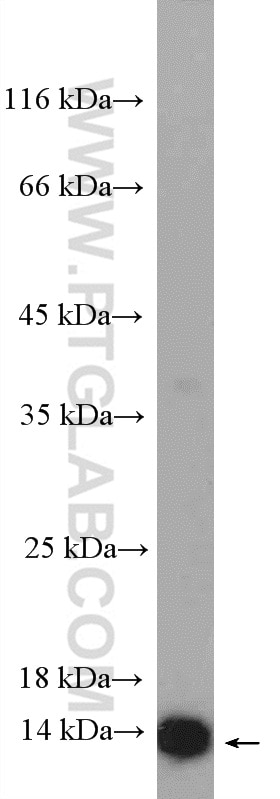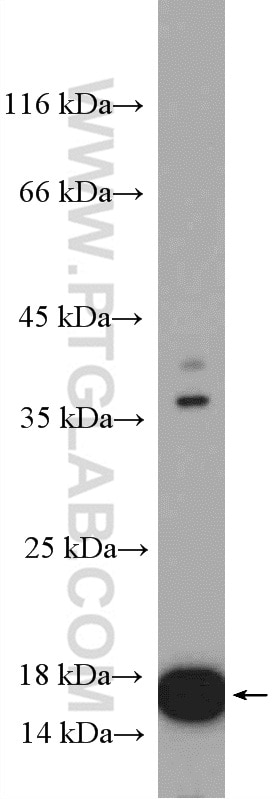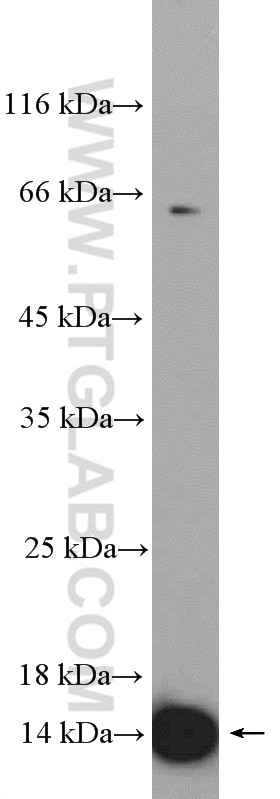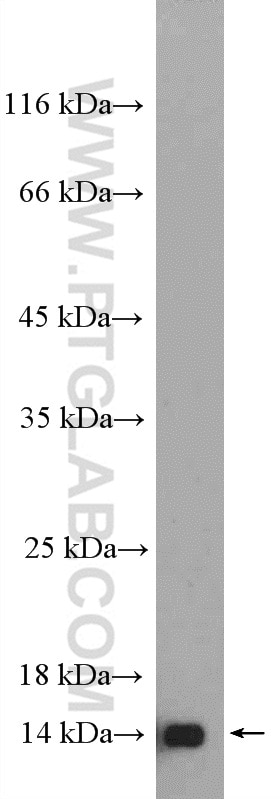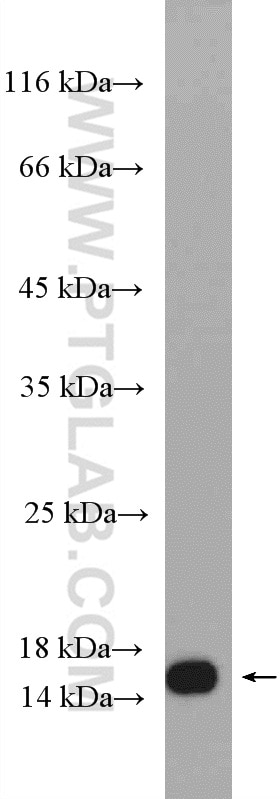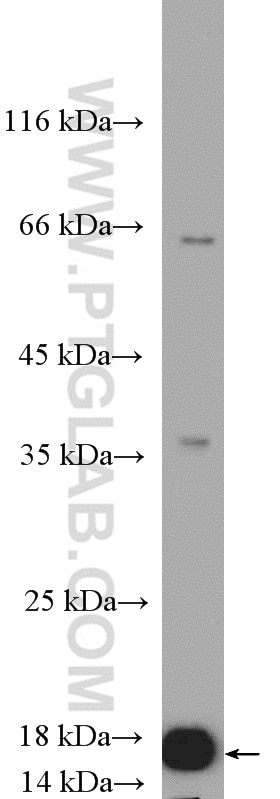RPL36 Polyklonaler Antikörper
RPL36 Polyklonal Antikörper für WB,ELISA
Wirt / Isotyp
Kaninchen / IgG
Getestete Reaktivität
human, Maus, Ratte
Anwendung
WB, ELISA
Konjugation
Unkonjugiert
Kat-Nr. : 15145-1-AP
Synonyme
Galerie der Validierungsdaten
Geprüfte Anwendungen
| Erfolgreiche Detektion in WB | PC-12-Zellen, BxPC-3-Zellen, HeLa-Zellen, HepG2-Zellen, NIH/3T3-Zellen |
Empfohlene Verdünnung
| Anwendung | Verdünnung |
|---|---|
| Western Blot (WB) | WB : 1:500-1:1000 |
| It is recommended that this reagent should be titrated in each testing system to obtain optimal results. | |
| Sample-dependent, check data in validation data gallery | |
Veröffentlichte Anwendungen
| WB | See 2 publications below |
Produktinformation
15145-1-AP bindet in WB, ELISA RPL36 und zeigt Reaktivität mit human, Maus, Ratten
| Getestete Reaktivität | human, Maus, Ratte |
| In Publikationen genannte Reaktivität | human, Maus |
| Wirt / Isotyp | Kaninchen / IgG |
| Klonalität | Polyklonal |
| Typ | Antikörper |
| Immunogen | RPL36 fusion protein Ag7437 |
| Vollständiger Name | ribosomal protein L36 |
| Berechnetes Molekulargewicht | 12 kDa |
| Beobachtetes Molekulargewicht | 12-14 kDa |
| GenBank-Zugangsnummer | BC003052 |
| Gene symbol | RPL36 |
| Gene ID (NCBI) | 25873 |
| Konjugation | Unkonjugiert |
| Form | Liquid |
| Reinigungsmethode | Antigen-Affinitätsreinigung |
| Lagerungspuffer | PBS mit 0.02% Natriumazid und 50% Glycerin pH 7.3. |
| Lagerungsbedingungen | Bei -20°C lagern. Nach dem Versand ein Jahr lang stabil Aliquotieren ist bei -20oC Lagerung nicht notwendig. 20ul Größen enthalten 0,1% BSA. |
Hintergrundinformationen
RPL36, also named as 60S ribosomal protein L36, is a 105 amino acid protein, which is a component of the large ribosomal subunit. RPL36 may be involved in the early stage of hepatocarcinogenesis, and it can be used as an independent and potential prognostic marker for resected HCC.
Protokolle
| Produktspezifische Protokolle | |
|---|---|
| WB protocol for RPL36 antibody 15145-1-AP | Protokoll herunterladen |
| Standard-Protokolle | |
|---|---|
| Klicken Sie hier, um unsere Standardprotokolle anzuzeigen |
Publikationen
| Species | Application | Title |
|---|---|---|
Nat Cell Biol METTL3 preferentially enhances non-m6A translation of epigenetic factors and promotes tumourigenesis | ||
J Pineal Res Amelioration of gamma irradiation-induced salivary gland damage in mice using melatonin |
